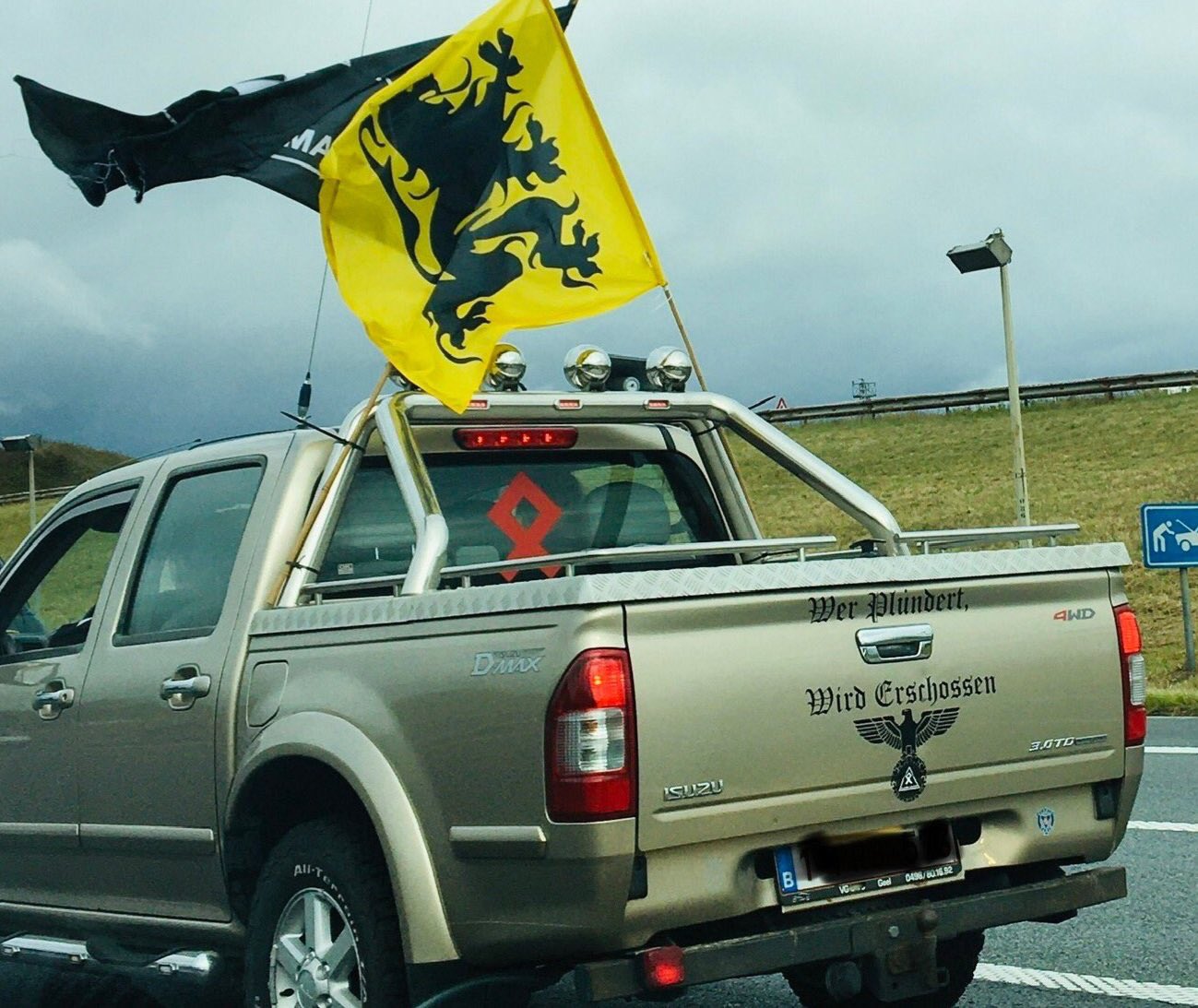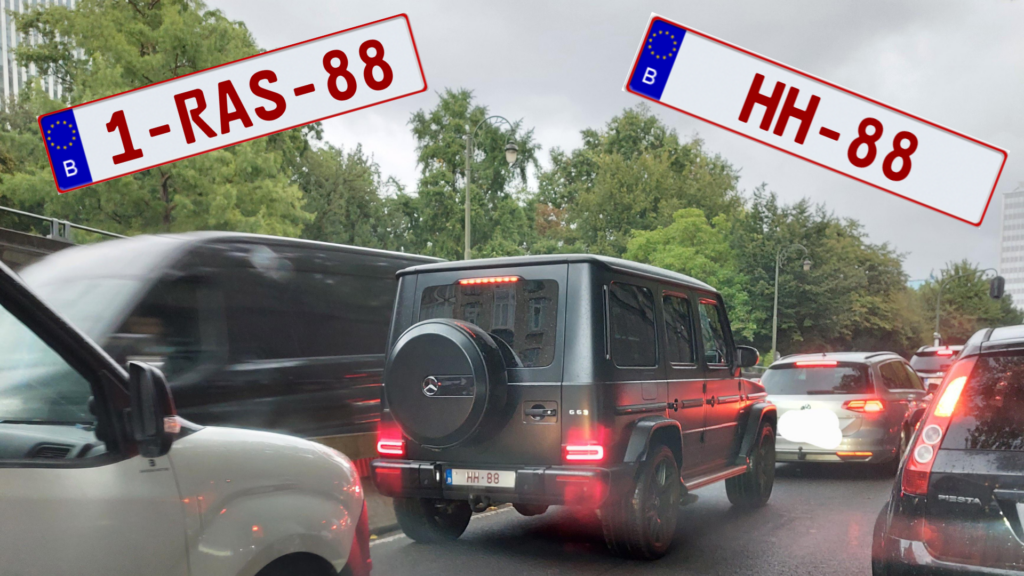Personalised licence plates with anti-Semetic and Nazi references are making it past the censor of Belgium’s Department of Vehicles Registration (DIV), reports Le Soir.
Licence plates with seemingly harmless characters and have been allowed into circulation by the DIV, hide a darker meaning. Two examples include “HH-88” (which makes reference to the Nazi salute and a numerical code for the same Nazi phrase) and “1-RAS-88” (‘Een ras’, trans 'one race') are known to be on Belgian roads somewhere.
Unia, formerly the Interfederal Centre for Equal Opportunities and the Fight against Discrimination, has called out what it describes as the trivialisation of Nazi symbols in public spaces. The group receives a growing number of complaints from people who see these signs and symbols on Belgian streets.
The European nationalist and “fachosphere” uses an array of codes, dog-whistles, and imagery to convey their ideology to fellow sympathisers or those in the loop. They often chose to do so in the face of national legislation which bans Nazi symbols and imagery.
The “1-RAS-88” plate, Unia says, combines both racist hatred and anti-Semetic references. Unia says it is highly unlikely that this choice of plate was a coincidence, especially considering the €1,000 fee that the person paid for it.
Strict action needed to cut through hazy legislation
Unia is calling on the Federal Government to take the problem seriously. “We first contacted the DIV to report these plates but they were willing to deregister them. Consequently, we contacted the Minister of Mobility (George Gilkinet) to find out what could be done,” Danaé Malengreau, a spokesperson for Unia, told Le Soir.
In a letter of explanation, DIV stated that the “88” on the 1-RAS-88 plate referred to “the year of birth of the applicant” and that the owner had assured them that the registration had “not been chosen with a racist or offensive intention.”
Yet Unia is unconvinced: “Such a response seems insufficient, especially in view of the expressly chosen combination of ‘Een Ras’ ‘88’ and ‘HH’.”
Unlike in Germany, where strict legislation and guidelines prevent Nazi symbols from appearing on license plates, there are no such laws in Belgium. “It is not illegal to have a plate of this style... Belgian legislation is not clear in the matter."
In response to the information presented by Unia, Minister of Mobility George Gilkinet stated that the results were “shocking” but legally complex: “The current legislation does not allow the automatic cancellation of a licence plate already in circulation. If a plate is not on the DIV’s black list, there is currently little the authorities can do."
Avoiding the law with offensive imagery
Like in many countries, it has proven difficult to legislate against Nazi dogwhistles and symbolism. While the public display of Nazi symbols is illegal in Belgium, neo-Nazis are known to create or co-opt new imagery.
During rallies by Flemish ultra-nationalists and neo-Nazis, protestors often brandish the Celtic Cross/Sun Cross, Sig runes, and the Black Sun logos. In 2020, a car emblazoned with Nazi symbolism joined a Vlaams Belang demonstration, sparking public outrage but not technically falling foul of the law.

Credit: Twitter
The use of the Sun Cross as a far-right symbol in Europe was partially popularised in Europe by Jeune Europe (Young Europe), a euro-nationalist movement formed by Belgian neo-nationalist Jean-François Thiriart.
Related News
- Nazi flags shock travellers in Antwerp station during film shoot
- Controversial 'neo-Nazi' music festival in Ypres cancelled
Gilkinet urges the DIV to redouble its vigilance when issuing new licence plates, notably by examining new requests and expanding the list of “prohibited combinations.”
To help in this task, the minister stated that he would seek the support of outside experts to help the DIV prevent the propagation of hateful ideas incompatible with democracy.
Last year, the department received 11,258 requests for custom plates, and over 7,000 so far this year.

